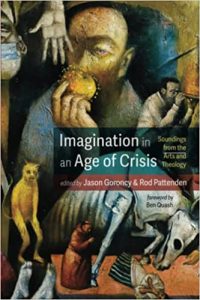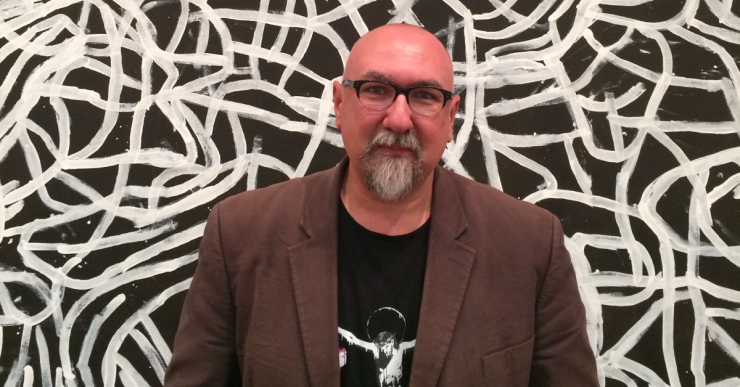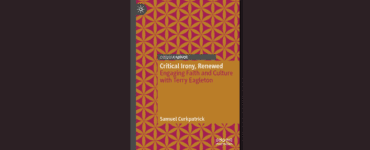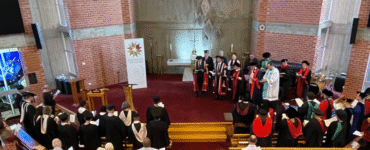Jason Goroncy was appointed Associate Professor of the University in October 2021 in recognition of his strong contribution in Engagement in the Church and Community, and outstanding contributions to Research and in Learning and Teaching. He recently spoke with Vox about what he enjoys about teaching, his own early theological studies, and why he thinks asking questions is a key component of theology.
Jason, congratulations on being appointed Associate Professor of the University of Divinity. What do you enjoy most about your Learning and Teaching work at the University?
Thank you. Probably the thing I most appreciate and welcome about teaching at the UD is the cultural and theological diversity of its students. This makes the classroom and HDR supervision to be environments filled with theological riches, where ideas and assumptions are alive and available for examination, and where students’ experiences are valued as indispensable ingredients in responsible theological work.
Do you have a favourite unit to teach to students? Why do you enjoy it?
I’m not sure I have ‘a favourite unit’. I enjoy teaching across a range of subjects, from Beginning Theological Studies to units on creation, theological anthropology, death, suffering, christology, and theology and the arts. As students are introduced to new ideas and alternative ways of reading the world, I enjoy seeing them come alive to the possibilities of theology and its relevance for contemporary life and faith. I suppose that this is another way of saying that while I don’t have a favourite unit, I do have favourite classes.
You’re also an alumnus of the Melbourne College of Divinity. What was valuable to you about your early theological studies?
I was fortunate to have some wonderful teachers who were not only on top of their game academically but who could also manage with grace a prickly student. My learning environment was also marked by a rich sense of student collegiality, supportive admin staff, computer-free classrooms, and excellent library resources. Studying in a beautiful part of Parkville wasn’t half bad either.
Tell us about your current area of research.
 I recently completed editing Imagination in an Age of Crisis: Soundings from the Arts and Theology (with Rod Pattenden), to which I contributed two essays. My current writing projects include essays on christology and music for The Oxford Handbook of Music and Christian Theology (OUP); on the Australian photographer Harry Nankin; and on Christ figures in Australian cultures. I’m also plodding away on a few monographs, including one on P. T. Forsyth, and another on trauma and resurrection in which I’m attempting to read the narratives of the resurrection experiences – those horror stories recorded in the Gospels – in dialogue with insights from trauma and theatre studies. As an act of penance, I’m also editing the T&T Clark Handbook of the Doctrine of Creation, for Bloomsbury.
I recently completed editing Imagination in an Age of Crisis: Soundings from the Arts and Theology (with Rod Pattenden), to which I contributed two essays. My current writing projects include essays on christology and music for The Oxford Handbook of Music and Christian Theology (OUP); on the Australian photographer Harry Nankin; and on Christ figures in Australian cultures. I’m also plodding away on a few monographs, including one on P. T. Forsyth, and another on trauma and resurrection in which I’m attempting to read the narratives of the resurrection experiences – those horror stories recorded in the Gospels – in dialogue with insights from trauma and theatre studies. As an act of penance, I’m also editing the T&T Clark Handbook of the Doctrine of Creation, for Bloomsbury.
What do you wish more people understood about theology?
It’s a good question. I think the answer to that question is actually about questions itself – that theology begins with – and is carried along by! – the questions we ask, and good questions are always so much more interesting, and so much more important, and difficult to arrive at, than are answers. The philosopher Iris Murdoch once said that: ‘In philosophy, one must start from scratch – & it takes a very long time to reach scratch’. This is just as true in theology, where our best questions are about helping us to get to ‘scratch’, from where we can stumble towards some kind of provisional – always provisional – ways to articulate the faith with the least stupid and least inadequate language we can muster. Along the way, I hope we can learn together that theology expands our horizons, rather than closes them down. The UD’s School of Indigenous Studies is among the greatest of gifts here.
Imagination in an Age of Crisis: Soundings from the Arts and Theology is available now at a special introductory price of 40% off. Use the code “Crisis40” at checkout through Wipf and Stock Publishers or through customer service by phone (1-541-344-1528) or email (orders@wipfandstock.com).







Add comment